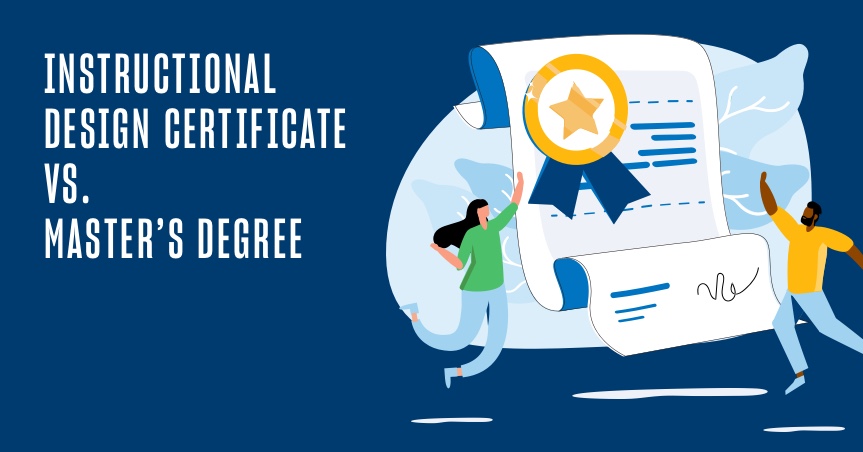Most teachers are motivated by the same driving force — to improve the classroom experience for their students. Teachers’ minds may be constantly churning with ideas for exciting project-based engagements, classroom upgrades and activities that take learning off the page and into three-dimensional life. However, many teachers find that their schools or districts lack the budget to fund much-needed upgrades or professional development, so teachers are often responsible for finding their own funding.
Fortunately, there are grants available for teachers who want to enhance their own capabilities and expand their expertise in primary- or secondary-level education. With a master’s degree in education, for example, teachers can grow their skill sets in areas like:
- Utilizing specific teaching strategies
- Classroom management
- Curriculum development
- Communication and creativity
- Technical knowledge and digital literacy
- Serving certain student populations, such as special education
A Master of Education can even help teachers move into school leadership positions, including school administration or educational policy development.
While earning a master’s degree can be a significant investment, teachers who leverage the right combination of grants, scholarships, loans and/or fellowships find that enhancing their teaching skills through an advanced degree is within their reach.
Want the Brochure for USD’s Online Master of Education Degree?
Earn your M.Ed. in just 20 months with a program designed for working professionals.
What Is a Teaching Grant?
Grants for teachers can take many forms — they can be monetary gifts, funds allocated for specific professional development purposes or even donated supplies for the classroom. Some grant funds specifically pay for technology upgrades in the classroom, while others are designated for teachers to attend graduate programs or other professional development opportunities. Grants can even support teachers’ research efforts, augment their existing salaries or support the care of a classroom pet!
Grants are available through school districts, universities, nonprofits, federal or state government agencies, and private donors or organizations. Grants differ from loans in that they do not need to be repaid by the recipient; they also differ from scholarships in that they are sometimes allocated on a reimbursement basis rather than up front.
6 Grants for Teachers to Get a Master’s Degree
While grants in the form of donated classroom supplies have tangible benefits, grants that pay for teachers to earn master’s degrees have far-reaching career implications. Below are seven teaching grants that help teachers learn new instructional methods, improve their classroom management or leadership skills, and enhance their career prospects while earning an advanced degree. Please note that some grants are only applicable to those who wish to teach certain academic subjects.
TEACH Federal Grants
Teacher Education Assistance for College and Higher Education (TEACH) grants award up to $4,000 a year to students enrolled at a school that participates in the TEACH grant program. Recipients are required to serve a minimum of four years as a full-time elementary or secondary teacher for low-income students in order to receive this grant; failure to do so results in the grant being converted to a loan.
[Related] View grant criteria>>
James Madison Graduate Fellowship
The James Madison Memorial Fellowship Foundation offers $24,000 to one recipient per state per year. The grant is awarded to educators who intend to teach history, government or civics at the secondary level.
[Related] View grant criteria>>
Knowles Teaching Fellows Program
While this fellowship program does not support earning a master’s degree, it can provide grants for teachers to engage in other forms of professional development, supplement teachers’ salaries or be used to purchase classroom supplies that support science and math curricula.
[Related] View fellowship criteria>>
Fund for Teachers
Full time, pre-K–12th grade teachers may apply for up to $5,000 to pursue professional learning opportunities that target a specific challenge or goal. Teams of two or more may apply for up to $10,000. Applicants are not limited by geographic location, and may pursue learning opportunities anywhere in the world.
[Related] View grant criteria>>
Mathematics Study & Professionalism Grants
Teachers may receive up to $24,000 in funding for graduate study to further their skills of mathematics instruction for grades pre-K–12. Applicants must be members of the National Council of Teachers of Mathematics.
[Related] View open grants>>
Segal AmeriCorps Education Award
Applicants are eligible to apply for this grant after completing an AmeriCorps term of service and enrolling in the National Service Trust. Recipients can use their award to repay student loans, fund graduate studies or pay for teacher training programs.
[Related] View grant criteria>>
Are You An Educator Considering the M.Ed Path?
Read the top 11 reasons to earn your master of education degree.
How to Apply for a Teaching Grant
Eligibility and application requirements will be different for each grant, but here are some common best practices that most (if not every) grantor will look for in your application materials.
Find appropriate grants: Grant criteria ranges from broad and open-ended to hyper-specific. Make sure you research grants and read the criteria carefully — you don’t want to spend time applying for a grant only to realize it’s for teachers pursuing a different, highly specific subject area.
Identify a specific need: Do you wish to expand your skill set around classroom management or teaching STEM? Are you seeking financial support for a research project conducted outside of your classroom hours? Identify and articulate a specific need for your grant, as well as a need for the work you intend to accomplish after completing your program; this will help you find an appropriate source of funding and stand out from the competition.
Find a like-minded source of funding: If you want to strengthen your expertise in teaching English language learners or engaging students with behavioral challenges, find an organization or funding source that supports equitable education. Tailor your application to speak directly to the grantor’s values, and show how your values and intent align with theirs.
Show evidence of your expenses: Grantors want to know how you will be spending their money. If you can point to a specific expense like school tuition or classroom supplies, it can help grantors decide who they can trust to fulfill the grant responsibilities. Applications will also ask for verifiable evidence of your need for funding. It helps to submit a detailed budget proposal with your application showing exactly how you will spend your award.
Get administrative buy-in: Current teachers should seek support from their school administrators or high-level colleagues in the form of letters of support or application review. Administrators or school leaders may even be able to provide additional resources to help you stand out from other applicants.
Industry Resources for Teaching Grants
The grants listed above are only a few of the many resources available to teachers who wish to fund further education or professional development. The following resources can help expand your search or target specific areas of interest.
National Education Association Foundation
Grants and fellowships for educators focusing on student equity, school leadership and classroom innovation.
National Environmental Education Foundation
Grants for educators committed to advancing STEM education and environmental action in their communities.
A searchable database of available teaching grants with additional resources, alerts and even a glossary of common grant terms.
Another searchable database that filters grants by geographical region and profession.
The federal government provides some sources of up-front funding to help defray the cost of higher education or career development.
You can also search for crowd-funded initiatives in which grantors choose the proposals they want to support. DonorsChoose provides a way for both seekers and grantors to match with each other based on shared interests and goals.
There are also many grants offered by individual U.S. states, counties and municipalities. Search on your state’s Department of Education website to find applicable opportunities.
Next Steps for Getting a Teaching Grant
Organizations that award teaching grants tend to seek out and prioritize current teachers who have clear goals and a proven commitment to education. As you search for opportunities and draft your proposals, demonstrate your commitment to professional development by articulating your desire to earn a master’s degree. If grantors understand why and how you believe an advanced degree will enhance your teaching abilities, the greater the chances they will provide support.
You can find grants and scholarship opportunities through the University of San Diego’s online Master of Education program. For more information about funding your next big career move, schedule an appointment with a USD enrollment advisor today.




